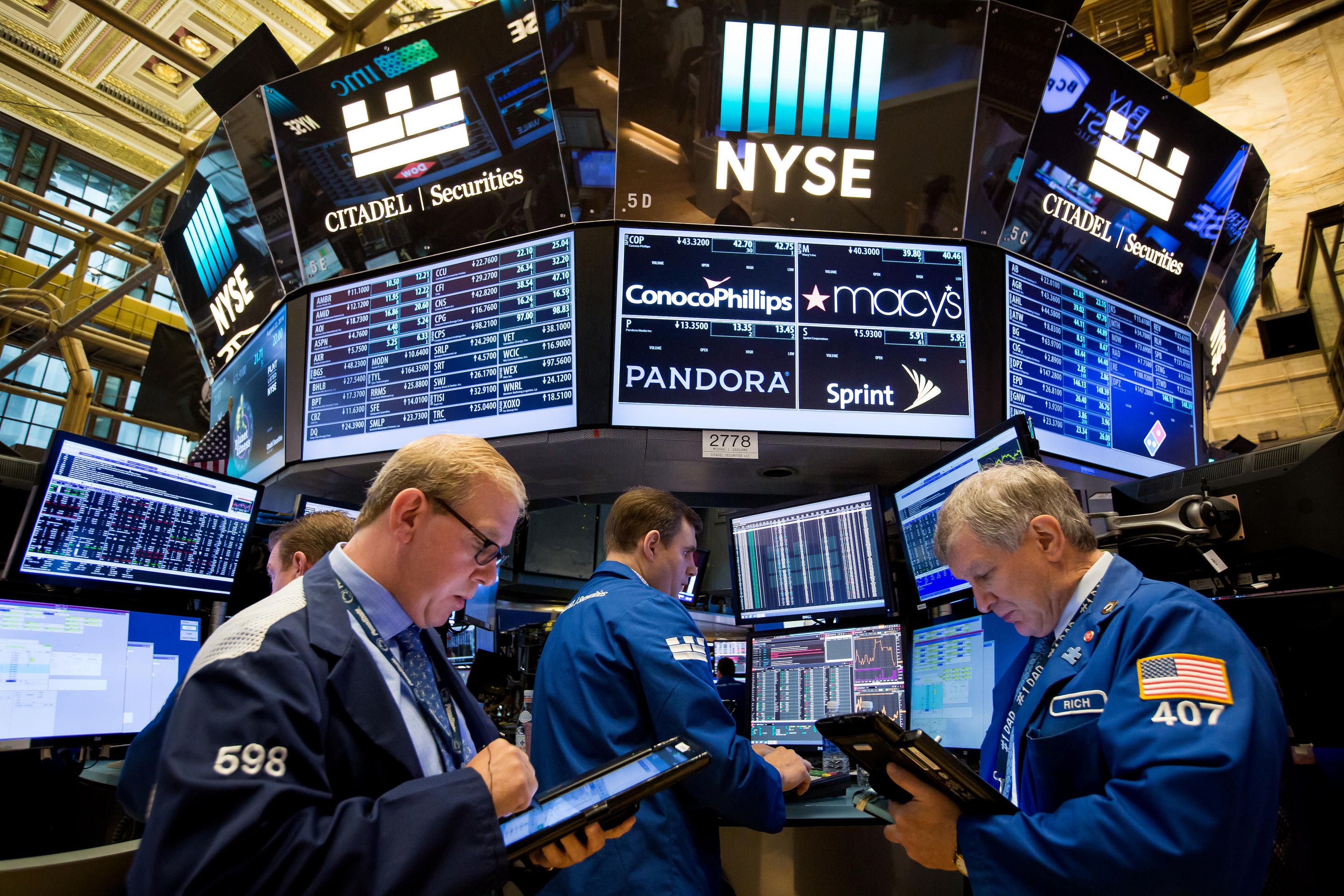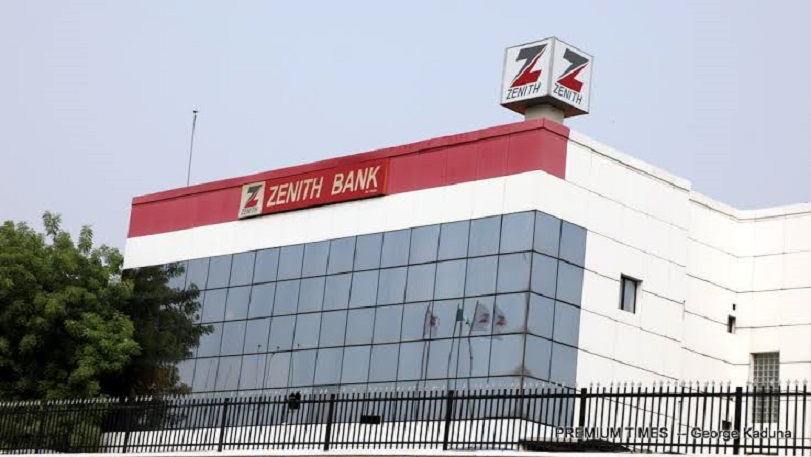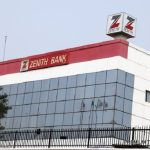Economy
Traders May Stick to Sidelines After Last Week’s Sell-Off

By Investors Hub
The major U.S. index futures are pointing to a roughly flat open on Monday following the sell-off seen on Wall Street last week.
Traders may look to pick up stocks at reduced levels, although concerns about the global economic outlook and skepticism about the potential for a long-term trade deal between the U.S. and China is likely to sap investors risk appetite.
Overall trading activity may be somewhat subdued, with a lack of major U.S. economic data likely to keep some traders on the sidelines.
The economic calendar remains relatively light throughout the week, although reports on producer and consumer price inflation, retail sales, and industrial production are likely to attract attention.
Traders may nonetheless remain reluctant to make significant moves ahead of the Federal Reserve?s monetary policy meeting next week.
With the Fed widely expected to raise interest rates by another quarter point, traders will closely scrutinize the accompanying statement for clues about future rate hikes.
Traders may look to pick up stocks at reduced levels on the heels of last week?s sell-off, which came amid skepticism about the potential for a long-term trade deal between the U.S. and China.
Overall trading activity may be somewhat subdued, however, with a lack of major U.S. economic data likely to keep some traders on the sidelines.
The economic calendar remains relatively light throughout the week, although reports on producer and consumer price inflation, retail sales, and industrial production are likely to attract attention.
Traders may nonetheless be reluctant to make significant moves ahead of the Federal Reserve?s monetary policy meeting next week.
With the Fed widely expected to raise interest rates by another quarter point, traders will closely scrutinize the accompanying statement for clues about future rate hikes.
After fluctuating early in the session, stocks moved sharply lower over the course of the trading day on Friday. The major averages showed a substantial move back to the downside following the rebound from early weakness seen on Thursday.
The major averages climbed off their worst levels going into the close but remained firmly negative. The Dow tumbled 558.72 points or 2.2 percent to 24,388.95, the Nasdaq plunged 219.01 points or 3.1 percent to 6,969.25 and the S&P 500 slumped 62.87 points or 2.3 percent to 2,633.08.
With the steep drop on the day, the major averages moved significantly lower for the week. The Nasdaq nosedived by 4.9 percent, while the Dow and the S&P 500 plummeted by 4.5 percent and 4.6 percent, respectively.
The sell-off on Wall Street came after the Labor Department’s closely watched monthly jobs report showed U.S. employment increased by much less than expected in the month of November.
The Labor Department said non-farm payroll employment rose by 155,000 jobs in November after surging up by a downwardly revised 237,000 jobs in October.
Economists had expected employment to climb by about 200,000 jobs compared to the jump of 250,000 jobs originally reported for the previous month.
Meanwhile, the report said the unemployment rate in November remained unchanged for the second straight month at 3.7 percent, holding at its lowest level since hitting 3.5 percent in December of 1969.
Average hourly employee earnings rose by $0.06 to $27.35 in November, reflecting a 3.1 percent increase compared to the same month a year ago. The annual rate of growth was unchanged from October.
“The slightly more modest 155,000 gain in payroll employment in November may not go down well in markets given the heightened nervousness in recent months,” said Paul Ashworth, Chief U.S. Economist at Capital Economics.
“But this is still a solid gain that suggests economic growth is gradually slowing back towards its potential pace,” he added. “There is nothing here to suggest the economy is suffering a more sudden downturn.”
Lingering skepticism about a U.S.-China trade agreement also weighed on the markets even though President Donald Trump tweeted, “China talks are going very well!”
Most of the major sectors showed notable moves to the downside over the course of the session, reflecting a broad based sell-off on Wall Street.
Computer hardware stocks showed a particularly steep drop on the day, dragging the NYSE Arca Computer Hardware Index down by 4.1 percent to a nearly two-year closing low.
Tech giant IBM Corp. (IBM) posted a significant loss after agreeing to sell some of its software products to India-based HCL Technologies for $1.8 billion.
Substantial weakness was also visible among transportation stocks, as reflected by the 3.9 percent nosedive by the Dow Jones Transpiration Average. The average tumbled to its lowest closing level in well over a month.
Semiconductor, software,
biotechnology, and retail stocks also saw considerable weakness, while
gold stocks were among the few groups to buck the downtrend amid an
increase by the price of the precious metal.
Economy
Terrahaptix Secures Additional $22m from Investors, Valuation Hits $100m

By Adedapo Adesanya
Nigerian defence technology startup, Terra Industries, has extended its funding round to $34 million after securing an additional $22 million from investors, making it a $100 million company.
The new capital round was led by venture firm Lux Capital, with injections from the chief executive officer of Lagos-based unicorn Flutterwave, Mr Gbenga Agboola, as well as angel investors such as American actor Jared Leto and Jordan Nel.
The company said in a statement on Monday that the round was completed in under two weeks.
This comes weeks after it raised $11.75 million in January. That funding round was led by 8VC founded by the co-founder of Palantir Technologies Inc., Mr Joe Lonsdale. Other investors included Valor Equity Partners, Lux Capital, SV Angel, Leblon Capital GmbH, Silent Ventures LLC, Nova Global and angel investors, including Mr Meyer Malka — the managing partner of Ribbit Capital.
Some of the investors in the new round included 8VC, Nova Global, Silent Ventures, Belief Capital, Tofino Capital, and Resilience17 Capital, founded by Flutterwave CEO.
Terrahaptix, founded by Mr Nathan Nwachukwu and Mr Maxwell Maduka, will use the new funding to expand Terra’s manufacturing capacity as it expands into cross-border security and counter-terrorism.
The extension also comes amid growing international expansion. Earlier this month, Terra announced a partnership with Saudi industrial giant AIC Steel to launch a manufacturing hub in Saudi Arabia focused on producing infrastructure security systems.
In the coming weeks, the company also plans to unveil a mega factory, an indication of the company’s growth and importance, particularly as the need for security has risen in recent years, as groups such as Islamic State and al-Qaeda are gaining ground in Africa, converging along a swathe of territory that stretches from Mali to Nigeria.
According to Mr Nwachuku, the initial $11.75 million raise created significant momentum for the company, enabling it to close the additional $22 million in just under two weeks.
He added that beyond capital, the investors were selected for their experience building similar hard-tech and defence-focused companies.
Economy
Analysts Predict 18% Inflation Rate for January 2026

By Adedapo Adesanya
Analysts have projected that Nigeria’s headline inflation could rise to about 18 per cent in January, defying the downward trend recorded in 2025.
The forecast comes ahead of the first Consumer Price Index (CPI) data release by the National Bureau of Statistics (NBS) of 2026 due on Monday.
Headline inflation closed December at 15.15 per cent year-on-year, while the annual average eased sharply to 23.33 per cent from 33.18 per cent in 2024.
According to analysts at Cowry Research, the recent CPI normalisation has created a lower base for January comparisons, making a temporary uptick in headline inflation likely in January and possibly February. It projects inflation to trend within the 17.8 per cent to 18.7 per cent range in 2026, driven by election-related spending pressures and fading base effects, even as structural reforms support a medium-term disinflation path.
Similarly, analysts at Quest Merchant Bank said the lower base effect could push January inflation to around 18 per cent to 19 per cent. They, however, expect inflation to resume a broadly disinflationary trajectory over the course of the year, supported by softer energy prices, stable exchange rate conditions and easing food costs.
Last year’s deceleration was driven largely by base effects after the stats office normalised its CPI computation methodology. Unlike previous rebasing exercises that used a single month as the base period, the agency calculated the base using the average of all months in 2024. The rebasing also involved reweighting several categories and expanding the inflation basket to 934 items from 740.
In December alone, the NBS published two separate inflation figures for December after the CPI methodology tweaking caused the headline rate to more than double.
Nigeria’s inflation data are closely monitored by the Central Bank of Nigeria (CBN) as it transitions toward an inflation-targeting monetary policy framework.
The CBN has already factored in the CPI rebasing and related computational issues in its three-year inflation forecast.
The apex bank is targeting a slowdown in inflation to around 13 per cent by next year, despite current price pressures and statistical adjustments.
The Monetary Policy Committee (MPC) will meet next week, and today’s inflation report will form the basis for whether there will be a cut or hold in the interest rates.
Economy
Deap Capital, Access Holdings, Zenith Bank Lead Activity Chart

By Dipo Olowookere
The trio of Deap Capital Management & Trust, Access Holdings, and Zenith Bank led the activity chart of the Nigerian Exchange (NGX) Limited last week.
In the five-day trading week, Customs Street posted a total turnover of 4.652 billion shares worth N193.326 billion in 286,751 deals compared with the 3.860 billion shares valued at N128.581 billion traded in 240,463 deals a week earlier.
According to data, financial services equities dominated the activity chart with 2.782 billion units sold for N74.063 billion in 104,325 deals, contributing 59.81 per cent and 38.31 per cent to the total trading volume and value, respectively.
Services stocks recorded the sale of 573.189 million units worth N7.177 billion in 28,784 deals, and consumer goods shares exchanged 317.667 million units valued at N24.027 billion in 33,280 deals.
Deap Capital, Access Holdings, and Zenith Bank accounted for 980.253 million shares worth N30.182 billion in 25,390 deals, contributing 21.07 per cent and 15.61 per cent to the total trading volume and value apiece.
Business Post reports that 79 equities appreciated versus 71 equities in the previous week, as 27 stocks depreciated versus 35 stocks in the previous week, while 42 shares closed flat, the same as the previous week.
Zichis was the best-performing stock after it gained 60.71 per cent to trade at N10.80, Union Dicon appreciated by 60.15 per cent to N20.90, DAAR Communications grew by 55.26 per cent to N2.95, Fortis Global Insurance rose by 50.00 per cent to 39 Kobo, and John Holt grew by 45.21 per cent to N10.60.
On the flip side, Abbey Mortgage Bank lost 26.42 per cent to quote at N11.00, Sovereign Trust Insurance shrank by 17.16 per cent to N2.80, Ecobank declined by 13.29 per cent to N45.00, SAHCO went down by 11.59 per cent to N135.00, and Austin Laz depleted by 11.11 per cent to N4.80.
Last week, the All-Share Index (ASI) and the market capitalisation appreciated by 6.16 per cent to 182,313.08 points and N117.027 trillion, respectively.
In the same vein, all other indices finished higher with the exception of the sovereign bond index, which fell by 0.01 per cent.
-

 Feature/OPED6 years ago
Feature/OPED6 years agoDavos was Different this year
-
Travel/Tourism10 years ago
Lagos Seals Western Lodge Hotel In Ikorodu
-

 Showbiz3 years ago
Showbiz3 years agoEstranged Lover Releases Videos of Empress Njamah Bathing
-

 Banking8 years ago
Banking8 years agoSort Codes of GTBank Branches in Nigeria
-

 Economy3 years ago
Economy3 years agoSubsidy Removal: CNG at N130 Per Litre Cheaper Than Petrol—IPMAN
-

 Banking3 years ago
Banking3 years agoSort Codes of UBA Branches in Nigeria
-

 Banking3 years ago
Banking3 years agoFirst Bank Announces Planned Downtime
-

 Sports3 years ago
Sports3 years agoHighest Paid Nigerian Footballer – How Much Do Nigerian Footballers Earn











